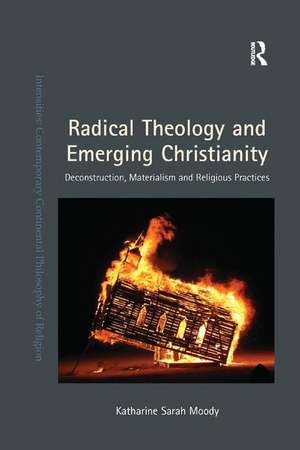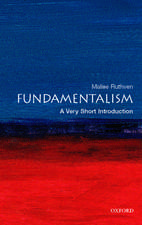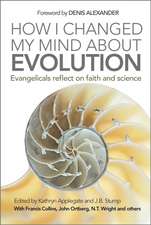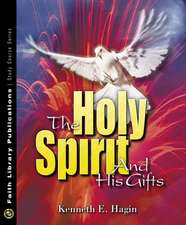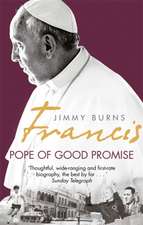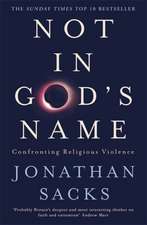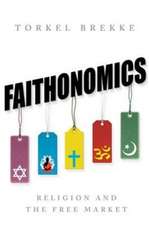Radical Theology and Emerging Christianity: Deconstruction, Materialism and Religious Practices: Intensities: Contemporary Continental Philosophy of Religion
Autor Katharine Sarah Moodyen Limba Engleză Paperback – 31 mar 2017
| Toate formatele și edițiile | Preț | Express |
|---|---|---|
| Paperback (1) | 469.34 lei 6-8 săpt. | |
| Taylor & Francis – 31 mar 2017 | 469.34 lei 6-8 săpt. | |
| Hardback (1) | 1008.59 lei 6-8 săpt. | |
| Taylor & Francis – 28 aug 2015 | 1008.59 lei 6-8 săpt. |
Preț: 469.34 lei
Nou
Puncte Express: 704
Preț estimativ în valută:
89.80€ • 94.27$ • 74.54£
89.80€ • 94.27$ • 74.54£
Carte tipărită la comandă
Livrare economică 10-24 aprilie
Preluare comenzi: 021 569.72.76
Specificații
ISBN-13: 9781138053243
ISBN-10: 1138053244
Pagini: 286
Dimensiuni: 156 x 234 x 15 mm
Greutate: 0.45 kg
Ediția:1
Editura: Taylor & Francis
Colecția Routledge
Seria Intensities: Contemporary Continental Philosophy of Religion
Locul publicării:Oxford, United Kingdom
ISBN-10: 1138053244
Pagini: 286
Dimensiuni: 156 x 234 x 15 mm
Greutate: 0.45 kg
Ediția:1
Editura: Taylor & Francis
Colecția Routledge
Seria Intensities: Contemporary Continental Philosophy of Religion
Locul publicării:Oxford, United Kingdom
Cuprins
Contents: Introduction; Part I An Emerging A/Theistic Imaginary: Religion and the critique of ideology; A theology of the God who dies; The excess of events over names; The matter of life; A theology of the (hyper-)real; A/Theism. Part II An Emerging IR/Religious Practice: ’Religion’ with/out religion; A faith/less fighting collective; Faithful betrayal;Transformance art; Suspended space; The Church emerging after God. Conclusion; Bibliography; Index.
Notă biografică
Katharine Sarah Moody (PhD, Lancaster University, UK) works at the intersection of European philosophy of religion and the empirical study of contemporary Christianity. She has published in philosophical and political theology.
Recenzii
’This book is a must-read for those who want to understand the relationship between the theological turn in continental philosophy and the radical liturgical practices of emerging Christianity. Katharine Sarah Moody’s creative analysis of the work of two important thinkers and practitioners - Peter Rollins and Kester Brewin - also helps us see how it is possible for emerging collectives to have a wider, socio-political impact. By exposing the radicalism that lies behind Rollins and Brewin’s discourses, while at the same time asking if they go far enough, Moody makes an original contribution to debates about how Christianity could be a force for change in the 21st century.’ Gladys Ganiel, Queen’s University Belfast, UK
"After [a] thorough and helpful foray into Žižek, Moody moves, in the following four chapters, to an extensive exposition of Caputo, whose work is the true lodestone of her approach. Whether or not one agrees with his writing, this section provides an excellent introduction to and explanation of his central ideas, and is of value in its own right." – John Reader, Ironstone benefice, Willian Temple Foundation and University of Worcester.
"After [a] thorough and helpful foray into Žižek, Moody moves, in the following four chapters, to an extensive exposition of Caputo, whose work is the true lodestone of her approach. Whether or not one agrees with his writing, this section provides an excellent introduction to and explanation of his central ideas, and is of value in its own right." – John Reader, Ironstone benefice, Willian Temple Foundation and University of Worcester.
Descriere
John D. Caputo’s deconstructive theology and Slavoj Zizek’s materialist theology are two radical theologies that explore what it might mean to pass through the death of God and to abandon this experience as specifically Christian. Moody demonstrates how these theologies are transforming everyday religious practices through an examination of the work of Peter Rollins and Kester Brewin, two figures at the radical margins of a contemporary expression of Western religiosity called emerging Christianity. The author uses her analysis of all four figures to argue that deconstructive practices can enable religious communities to become part of a wider materialist collective in which the death of God continues to resonate.
